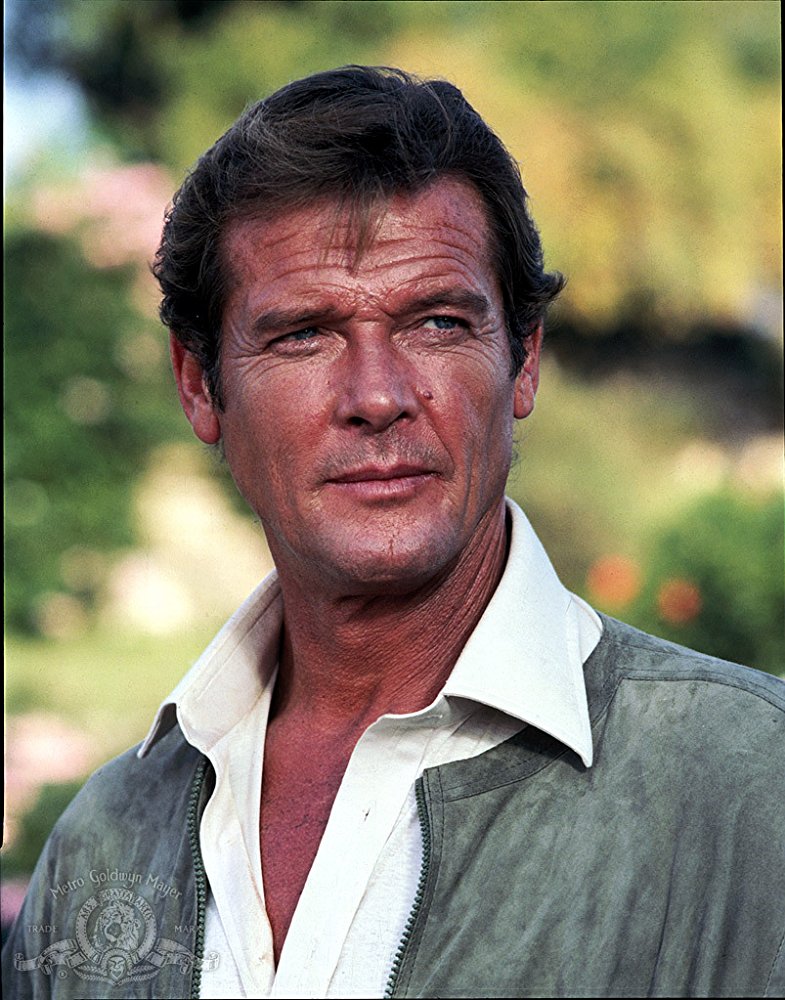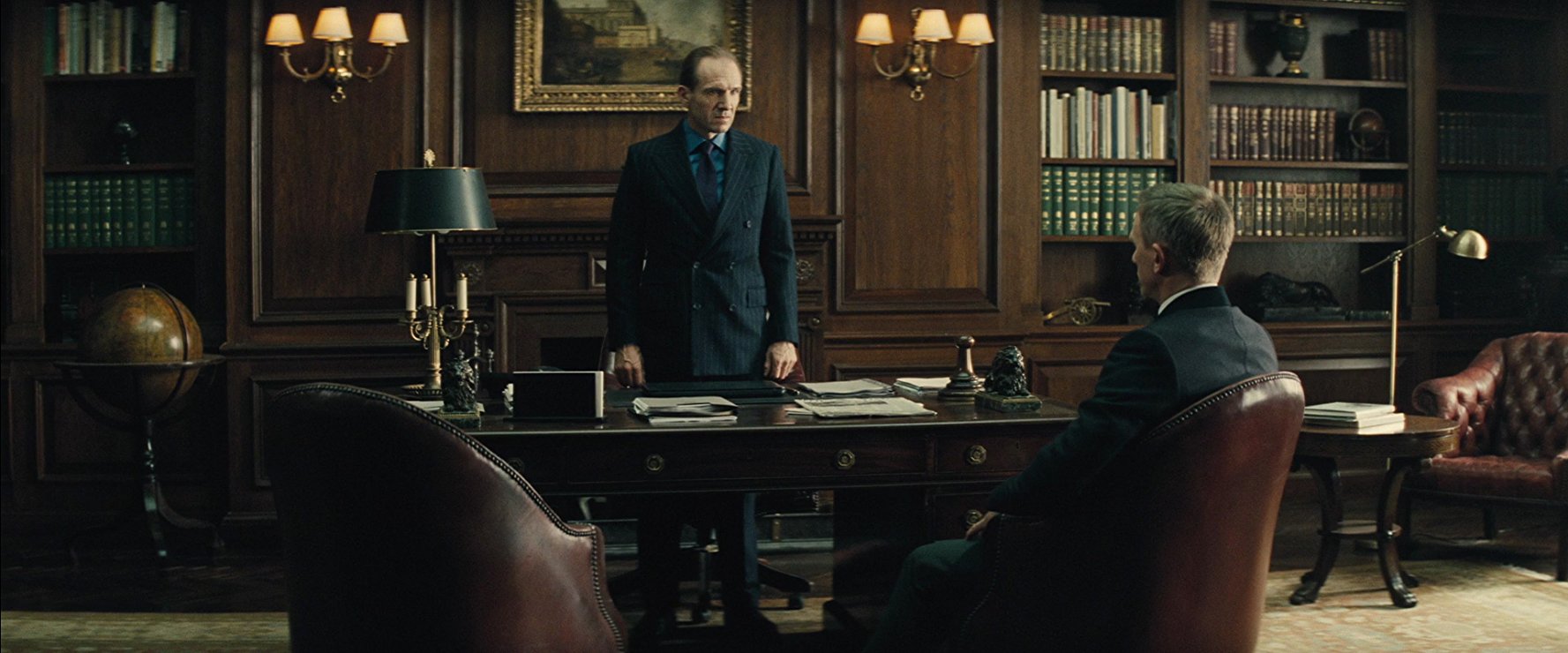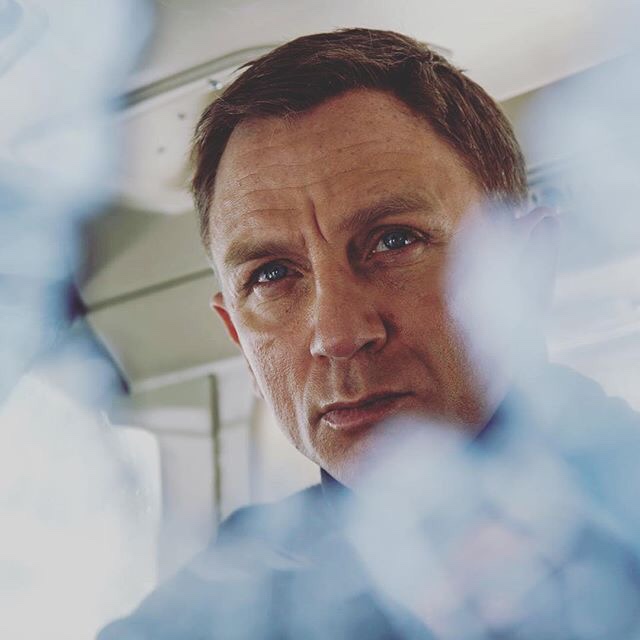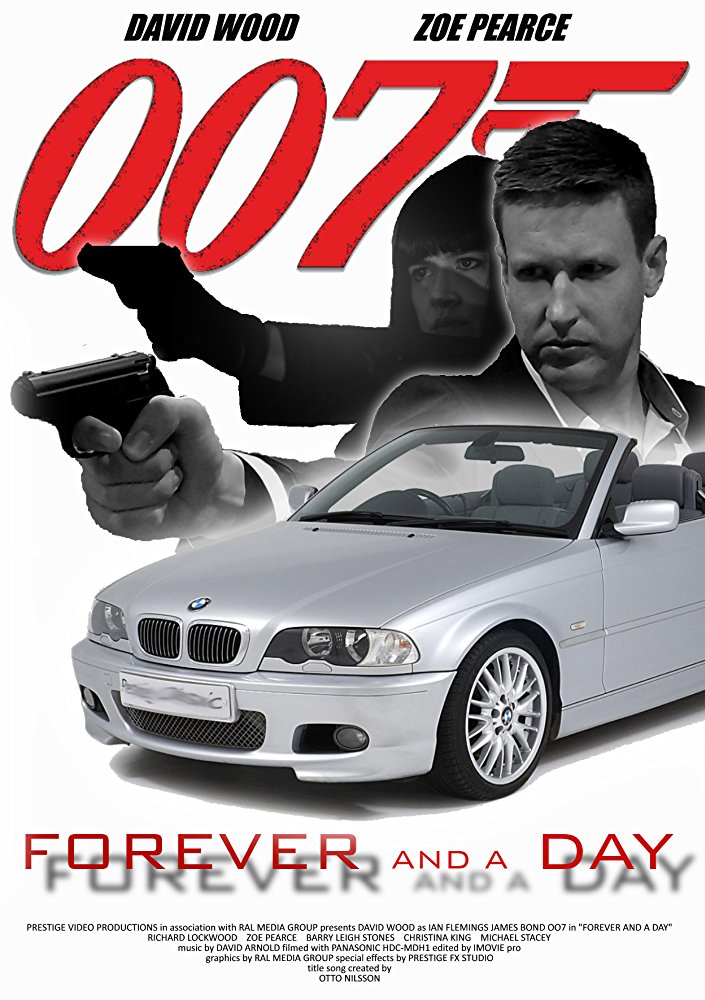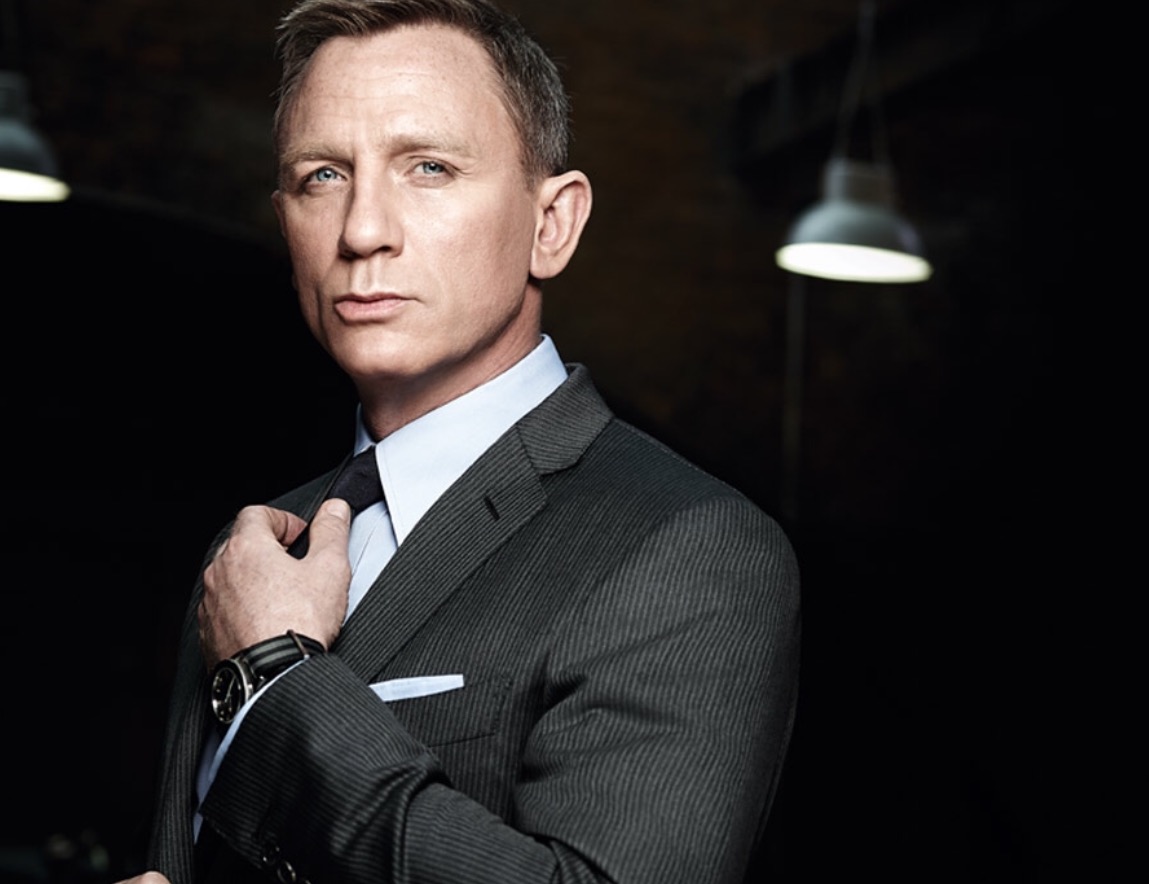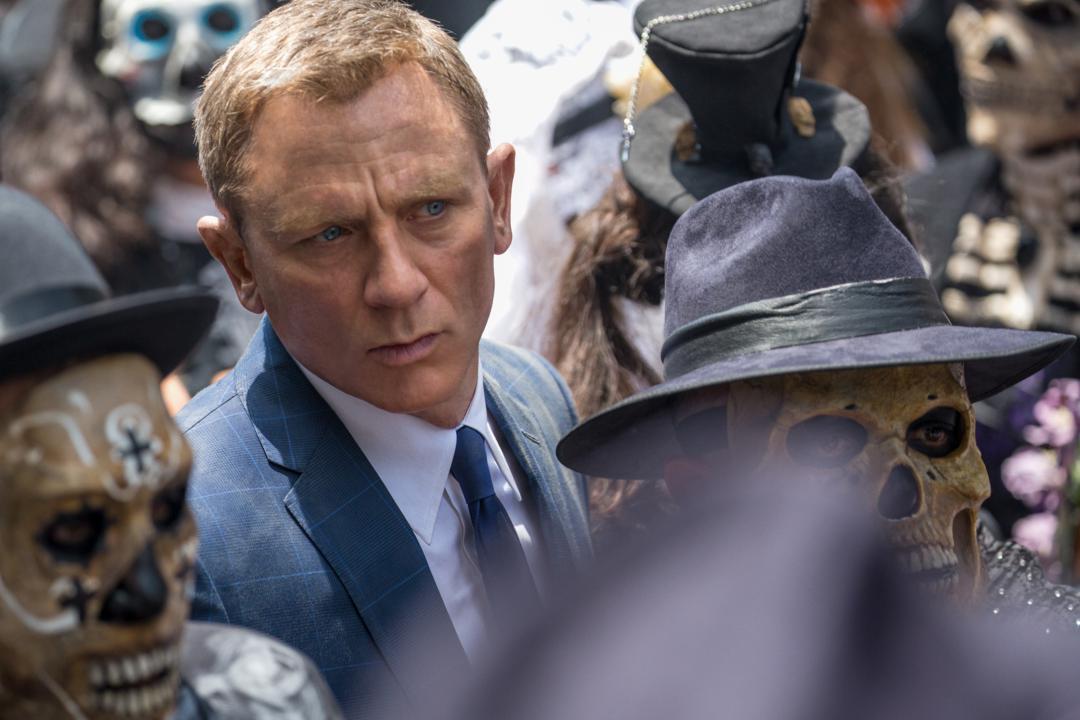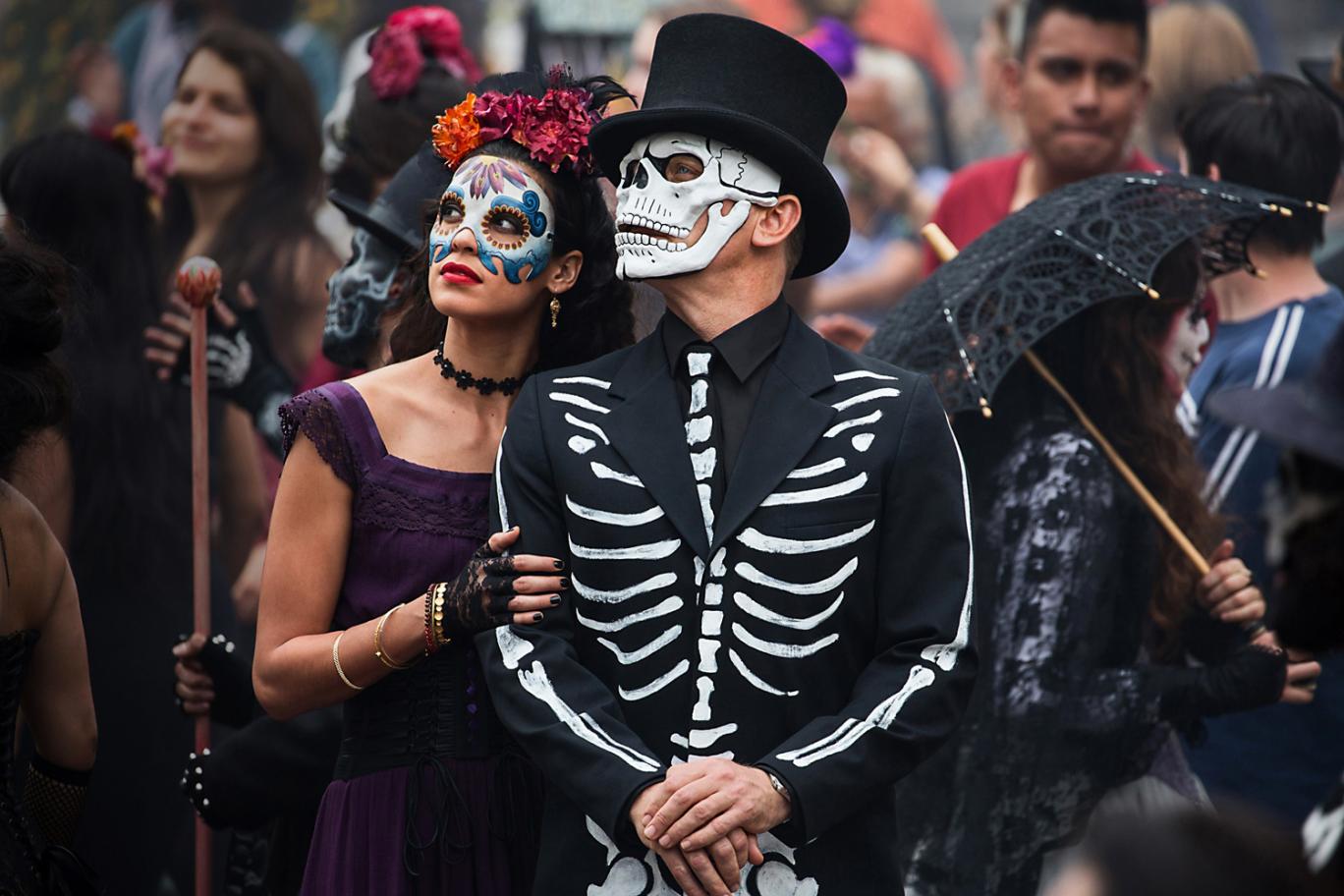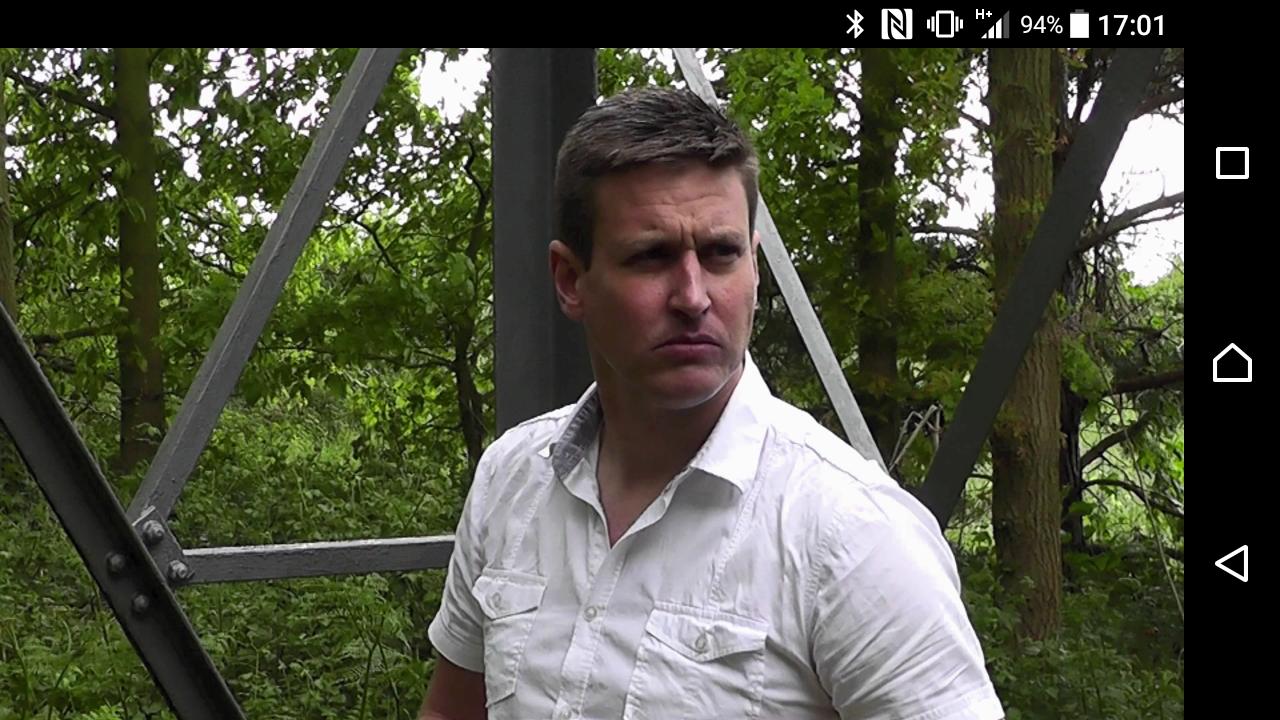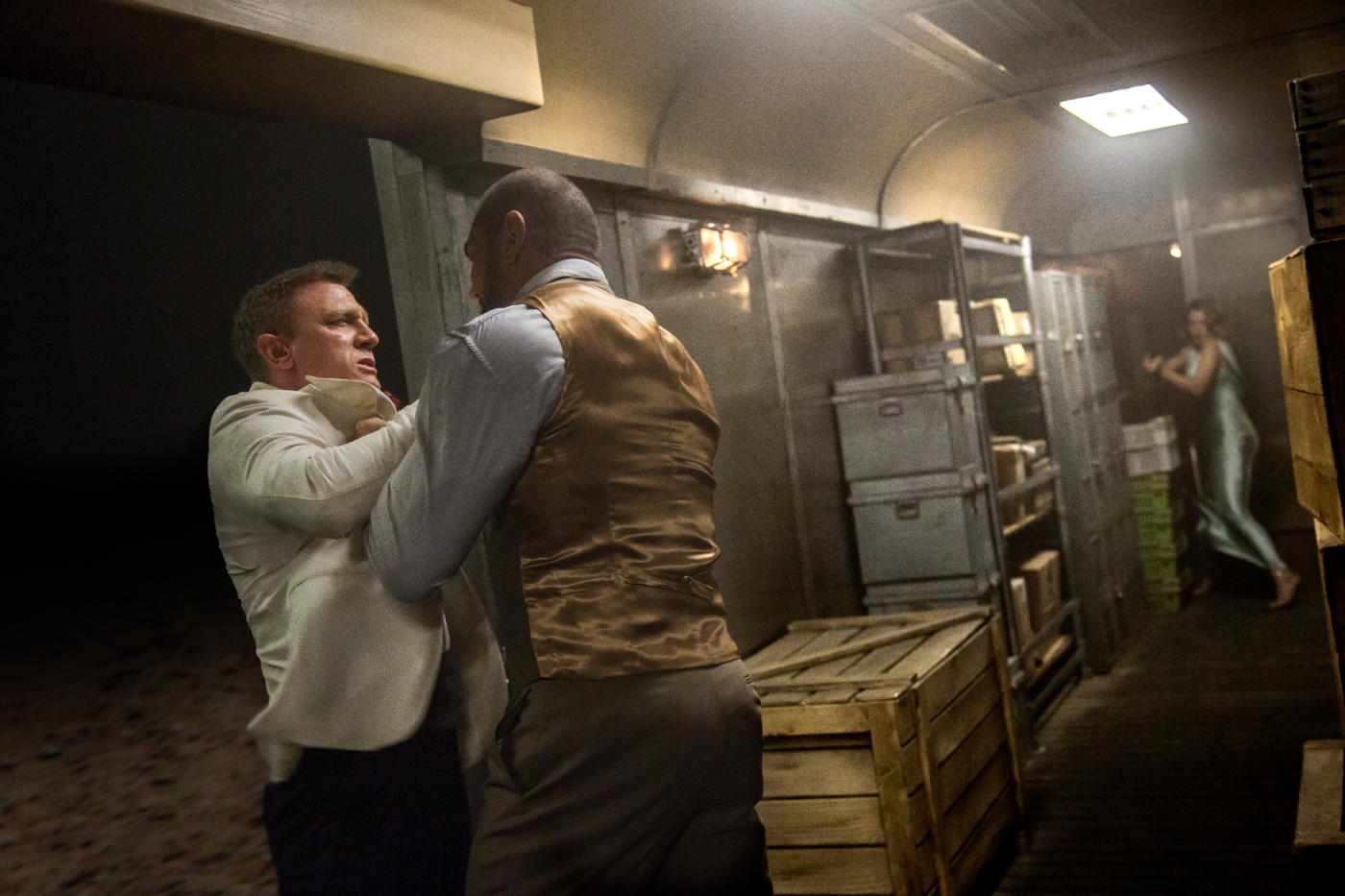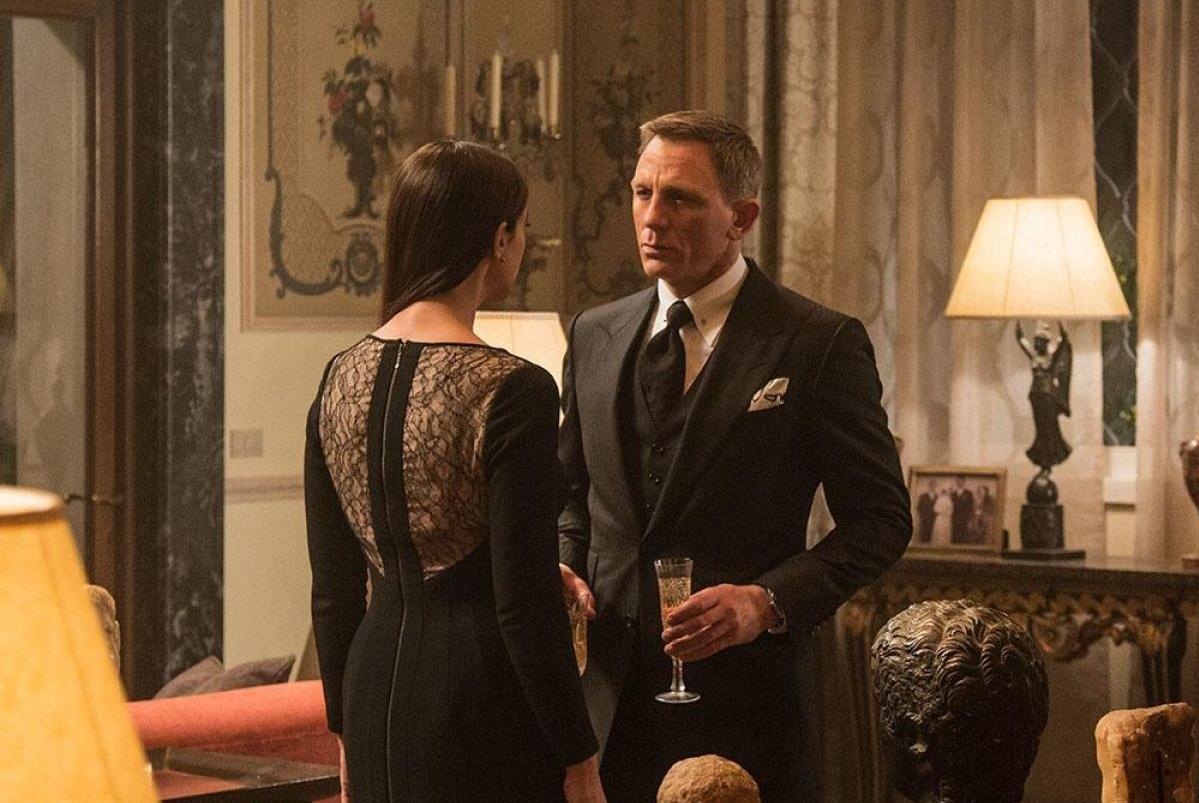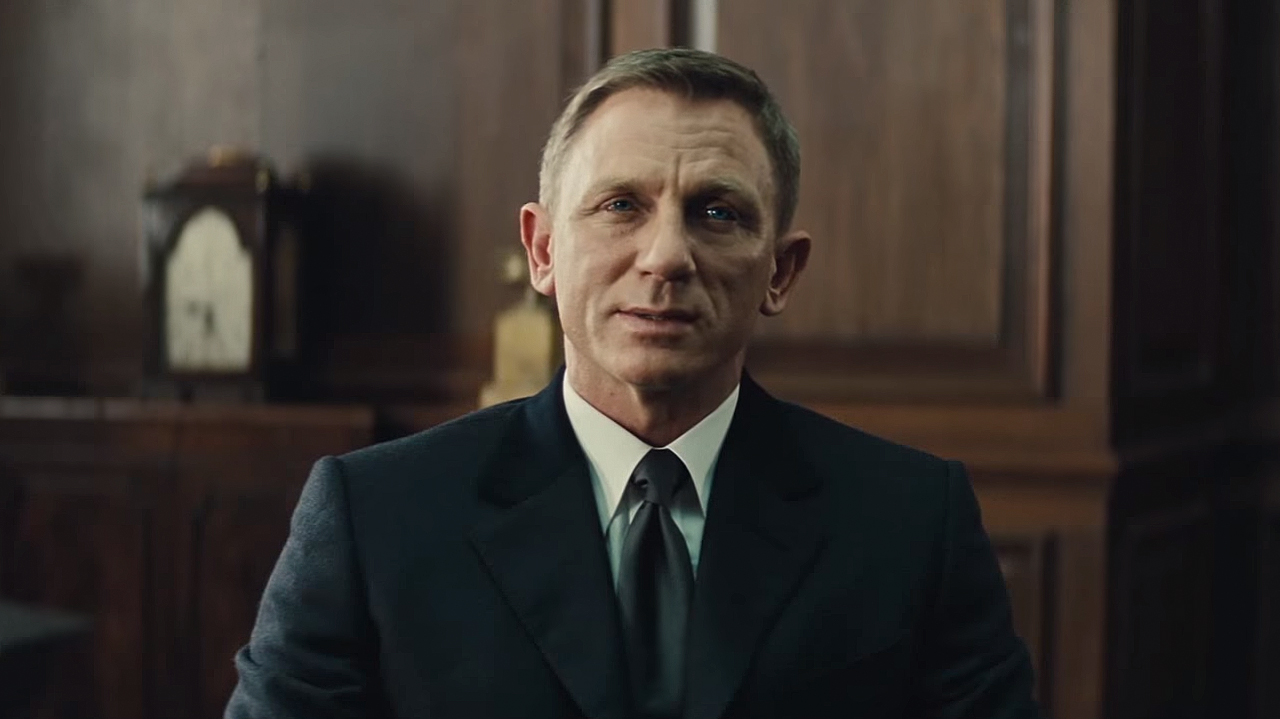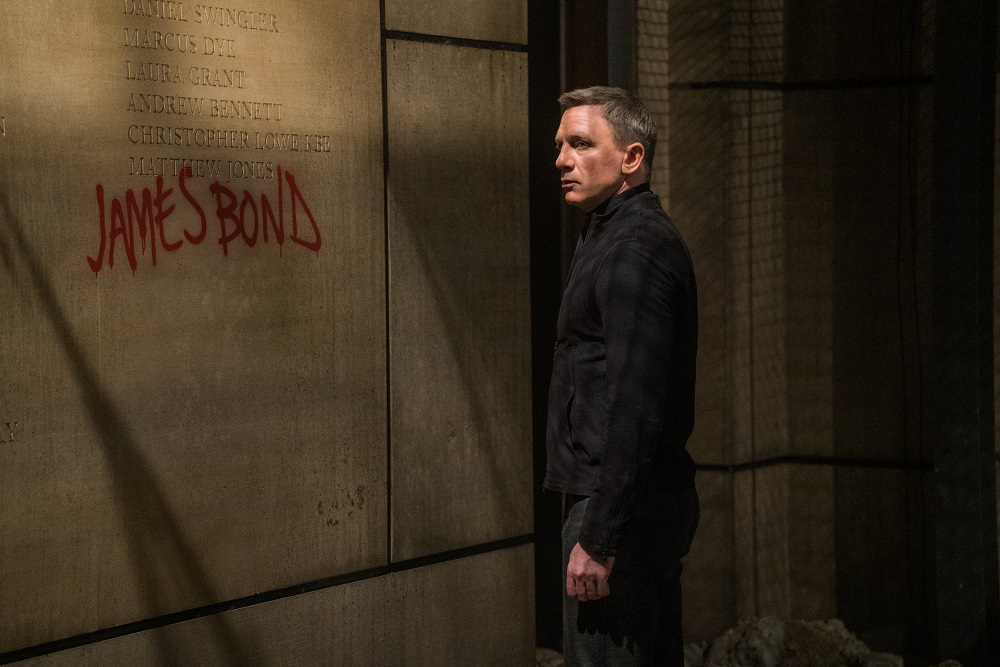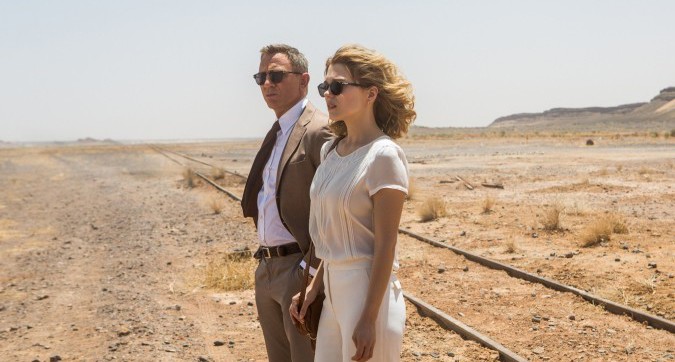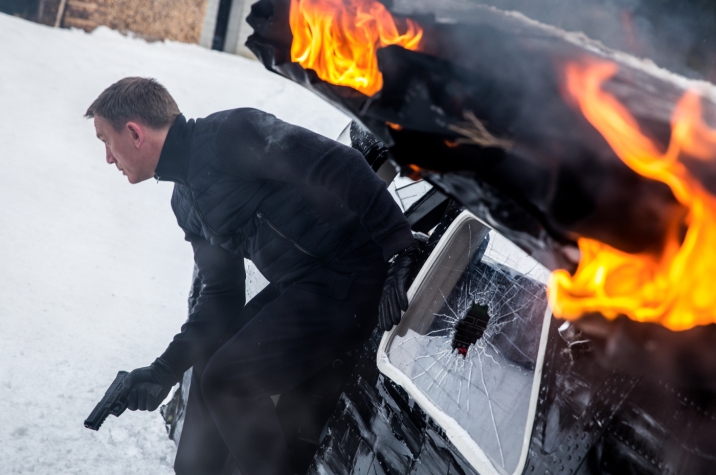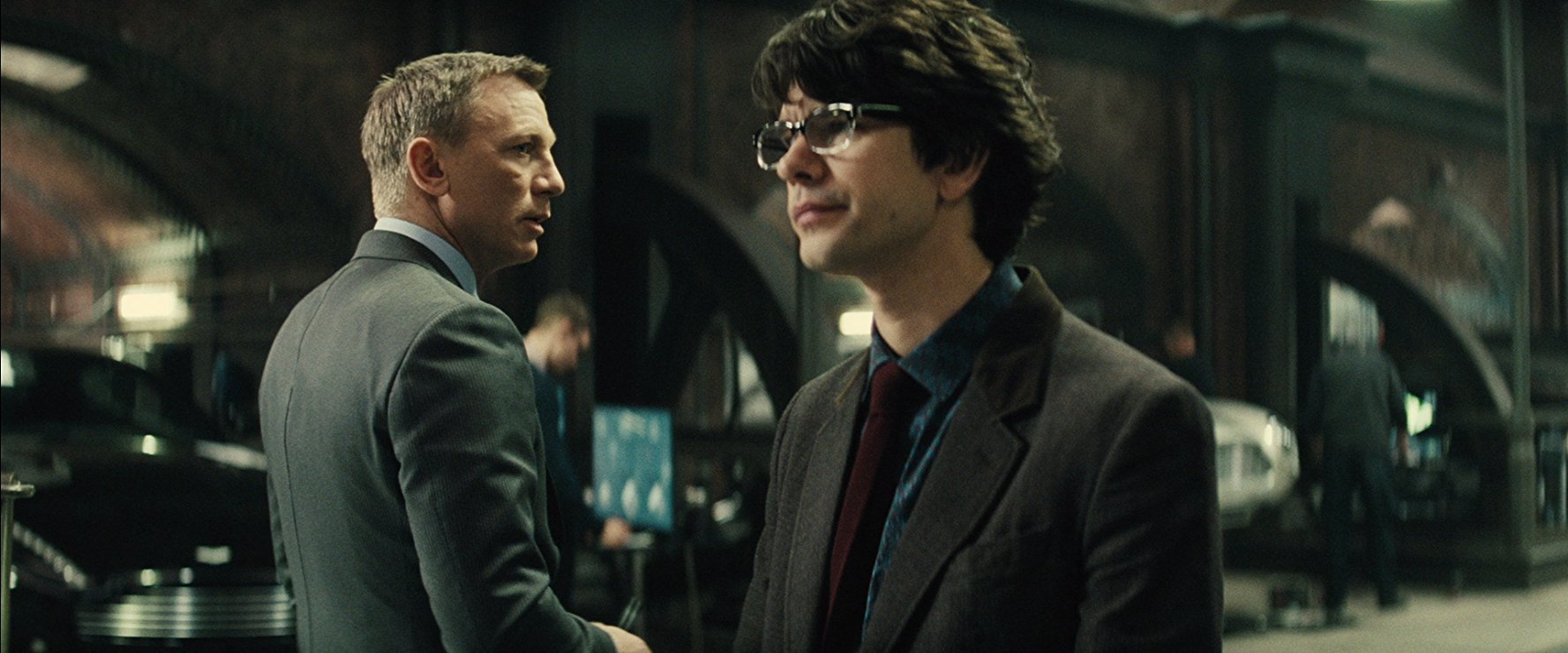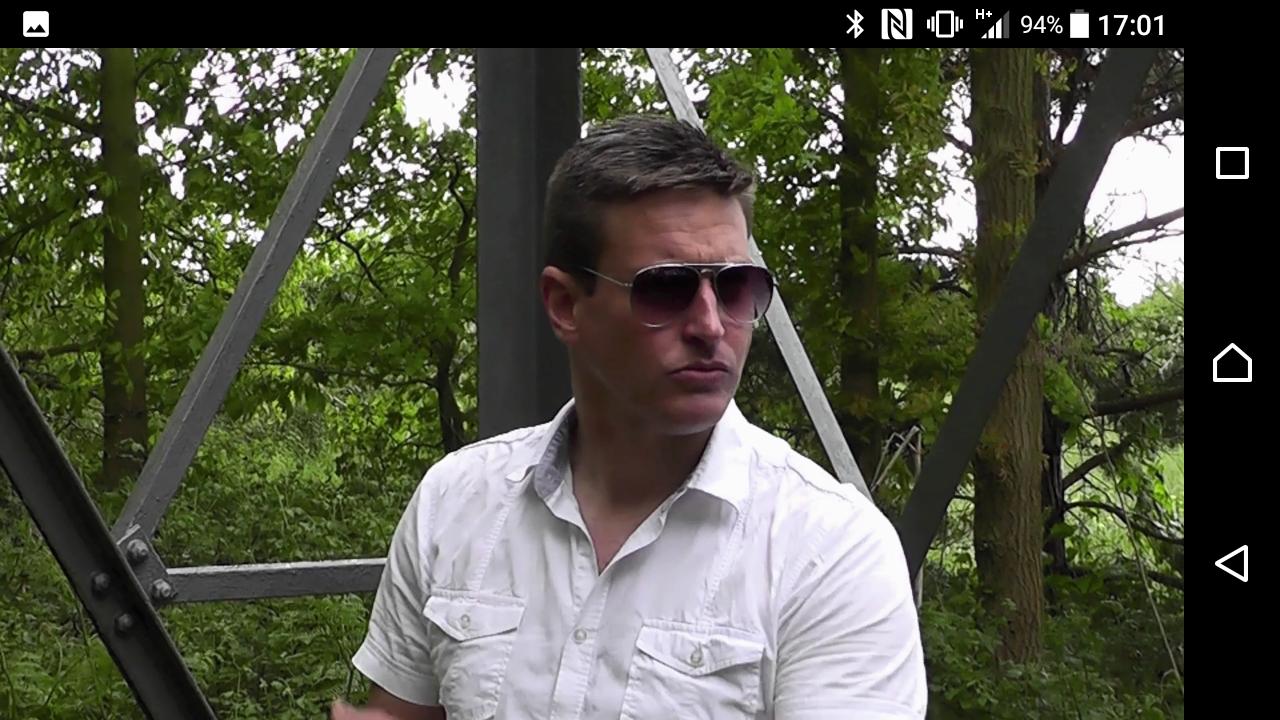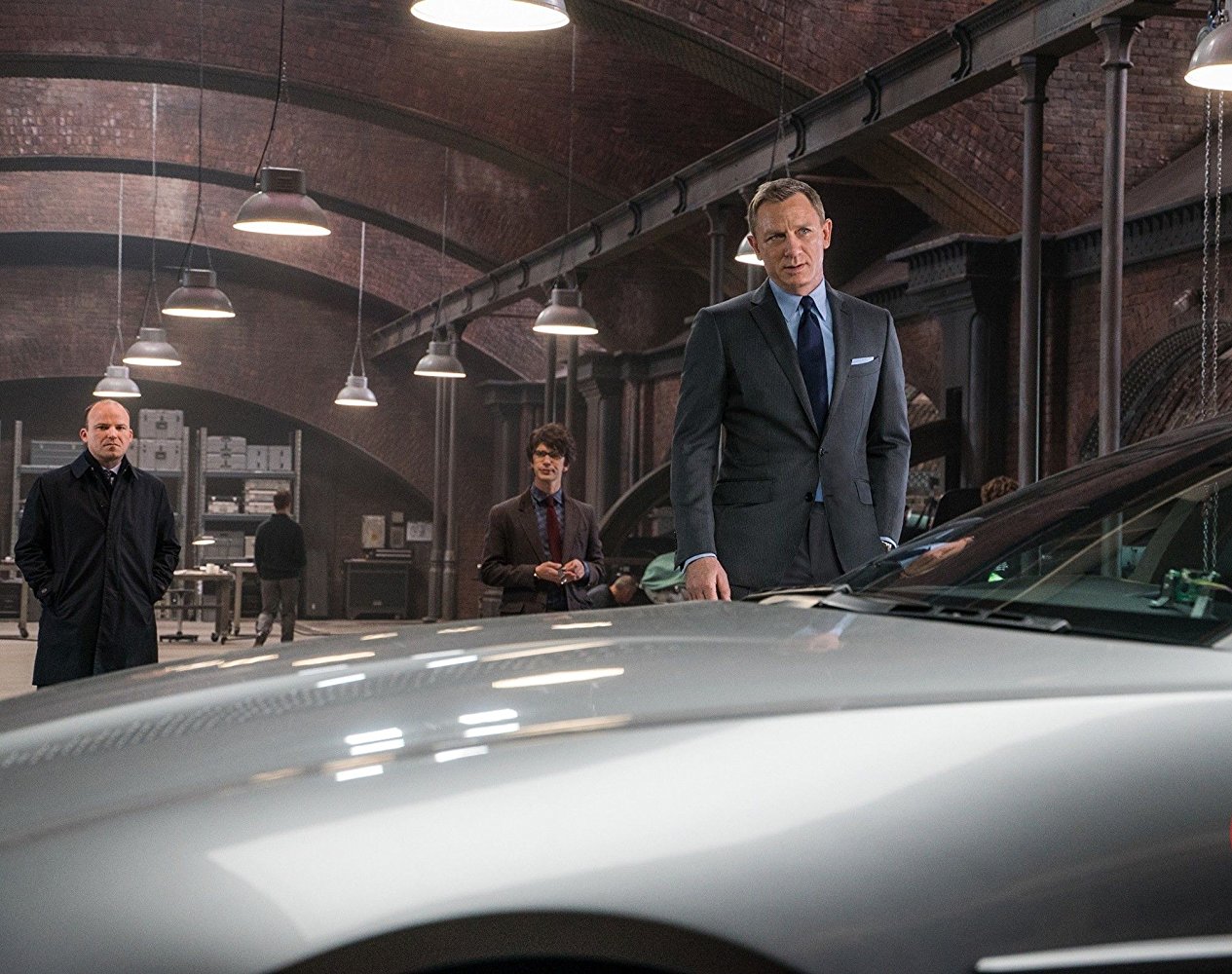COMMANDER JAMES BOND, CMG, RNVR (Sean Connery, George Lazenby, Roger Moore, Timothy Dalton, Pierce Brosnan, Daniel Craig), a/k/a AGENT 007 OF HM SECRET SERVICE, and once miscalled SIR JAMES BOND KCMG (David Niven), was and is the most valuable member of that elite force within Her Majesty's Secret Service known as the Double O section, the members of which are literally licensed to kill. (In fact, Admiral Sir Miles Messervy, the first M or head of the Secret Service when Bond got his Double O number, once offered to recommend Commander Bond for knighthood. Out of the sheer stubbornness of the Scottish peasant he was and is, Bond definitely refused. See Fleming I, The Man With the Golden Gun, for details.) Contents [hideshow] 1. Background 2. World War II service with the Royal Navy 3. In the SIS 4. Description and personal life Commander Bond won appointment to the Most Distinguished Order of St. Michael and St. George for his extraordinary non-military service to Her Majesty's government in foreign lands.BackgroundIn Fleming's stories James Bond is an ageless character in his mid-to-late thirties. In Moonraker, he admits to being eight years shy of mandatory retirement. James Bond's birth year is unknown because Fleming changed the dates and times of events. Most researchers and biographers conclude that he was born either in 1917, 1920, 1921, or 1924 (see more). Fleming never said where James Bond was born, although people have speculated based on derivative works. You Only Live Twice reveals Bond is the son of a Scottish father, Andrew Bond, of Glencoe, and a Swiss mother, Monique Delacroix, of the Canton de Vaud. The boy James Bond spends much of his early life abroad, becoming multilingual in German and French because of his father's work as a Vickers armaments company representative. When his parents are killed in a mountain climbing accident in the Aiguilles Rouges near Chamonix, eleven-year-old James is orphaned.In On Her Majesty's Secret Service, the Bond family motto might be Orbis non sufficit (Latin for The world is not enough ). The coat of arms and motto belonged to the historical Sir Thomas Bond; his relation to James Bond is unclear and neglected by the latter. In fact, he is indifferent to his potential genealogical relationship to Sir Thomas Bond, demonstrated by his abrupt response to Griffin Or on being told of the motto: Griffin Or broke in excitedly, 'And this charming motto of the line, The World Is Not Enough . You do not wish to have the right to it?''It is an excellent motto which I shall certainly adopt,' said Bond curtly. He looked pointedly at his watch. 'Now I'm afraid we really must get down to business. I have to report back to my Ministry.' (However, in The World Is Not Enough, Bond cites this motto by way of throwing Electra King's temptation, I could have given you the world, back into her face.)After the death of his parents, he goes to live with his aunt, Miss Charmian Bond, in Pett Bottom village, where he completes his early education. Later, he briefly attends Eton College at 12 or thereabouts (13 in Young Bond), but is removed after four halves because of girl trouble with a maid. He reminisces about losing his virginity at sixteen, on a first visit to Paris, in the short story From a View to a Kill . Bond is removed from Eton and sent to Fettes College in Edinburgh, Scotland, his father's school. Per Pearson's James Bond: The Authorised Biography and an allusion in From Russia, with Love, Bond briefly attended the University of Geneva. Some of Bond's education is based on Fleming's own, both having attended Eton, and the University of Geneva.World War II service with the Royal NavyIn 1941, Bond lies about his age in order to enter the Royal Naval Volunteer Reserve during World War II, from which he emerges a Commander. He retains that rank while in the British Secret Service of Fleming's novels, John Gardner's continuation novels, and the films. Continuation novelist John Gardner promoted Bond to Captain in Win, Lose or Die. Since Raymond Benson's novels are a reboot, Bond is a Commander, and a member of the RNVSR (Royal Naval Volunteer Supplementary Reserve), an association of war veteran officers. After joining the RNVR, Bond is mentioned travelling in the U.S., Hong Kong, and Jamaica, and that he joined another organisation, such as the SOE or the 00-Section of the SIS or as leader of a Royal Marine unit on secret mission behind enemy lines in the war or in (Fleming's) Red Indians 30 Commando Assault Unit (30 AU). One supporting fact is Bond in the Ardennes firing a bazooka in 1944. The 30 AU were the only British small unit attached to the US Army in Europe. In Bond's obituary, his commanding officer, M, alludes to the rank as cover: To serve the confidential nature of his duties, he was accorded the rank of lieutenant in the Special Branch of the R.N.V.R., and it is a measure of the satisfaction his services gave to his superiors that he ended the war with the rank of Commander. You Only Live Twice, chapter 21: Obit In the SISBond is a civil servant, working in the Ministry of Defence as a Principal Officer, a civilian grade equivalent to a Captain in the Royal Navy. Bond is introduced as a veteran 00-agent in Casino Royale. It is never stated when Bond became a 00-agent, though references in Casino Royale suggest during World War II while Casino Royale suggests 1952. Bond earns his 00 status with two tasks, outlined in Casino Royale. The first was his assassination of a Japanese spy on the 36th floor of the RCA Building at Rockefeller Center in New York City; the second, his assassination of a Norwegian double agent who had betrayed two British agents. Bond had travelled to Stockholm to stab and kill the man in his sleep. In James Bond: The Authorised Biography of 007, Pearson suggests Bond first kills as a teenager. Bond's assignments prior to Casino Royale are sometimes reflected through the novels. Through this time Bond had assignments in Monte Carlo, Hong Kong, Jamaica, etc. In 1954, according to the Soviet file on him cited in From Russia with Love, Bond is made a Companion of the Order of St Michael and St George, supposedly only awarded upon retirement from the Service; in The Man with the Golden Gun, he rejects an offer of investiture as a Knight Commander in that order, extended as a reward for his having successfully carried out his assignment to kill the Soviet assassin Francisco Scaramanga, as he does not wish to become a public figure. The literary James Bond is reserved in his licensed killing, sometimes disobeying kill orders if the mission might be accomplished otherwise, as in The Living Daylights where he makes a last-second decision to disobey orders and not kill an assassin. Instead, he shoots the assassin's gun and accomplishes the mission. Later, he feels so strongly about that decision that he hopes M will fire him for it. In the novel Goldfinger, James Bond is haunted by memories of a Mexican gunman he killed with bare hands days earlier. There are Fleming works in which Bond does not kill anyone. Bond hates those who kill non-combatants, especially women. Nonetheless, he kills when needed: It was part of his profession to kill people. He had never liked doing it and when he had to kill he did it as well as he knew how and forgot about it. As a secret agent who held the rare Double-O prefix the licence to kill in the Secret Service it was his duty to be as cool about death as a surgeon. If it happened, it happened. Regret was unprofessional worse, it was a death-watch beetle in the soul. Goldfinger, chapter 1: Reflections in a Double Bourbon Bond has a cavalier attitude toward his death, accepting that he most likely will be killed if captured, and expects MI6's disavowal of him. He withstands torture in Casino Royale without talking. In the novels preceding Dr. No, Bond uses a .25 ACP Beretta automatic pistol carried in a light-weight chamois leather holster, however, in From Russia, With Love, in the draw, the gun snags in Bond's jacket, and, because of this incident, M and Major Boothroyd order Bond re-equipped with a Walther PPK and a Berns-martin triple-draw holster made of stiff saddle leather. He continues using this pistol until John Gardner's Licence Renewed, where he uses different weapons, choosing the ASP 9 mm in later books. According to Gardner in the novelisation for Licence to Kill, the Walther PPK is not Bond's favourite weapon. With Raymond Benson, Bond begins using the PPK again until being updated in both the film and novelisation Tomorrow Never Dies with the Walther P99. James Bond: The Secret World of 007 reports that Bond is a judoka and knows other martial arts. The file on him cited in From Russia, With Love, Chapter 4: Death Warrant, confirms this first, saying that he knows the basic holds of judo. Description and personal lifeIn the novels (notably From Russia, with Love), Bond's physical description has generally been consistent: slim build; a three-inch long, thin vertical scar on his right cheek; blue-grey eyes; a cruel mouth; short, black hair, a comma of which falls on his forehead (greying at the temples in Gardner's novels); and (after Casino Royale) the faint scar of the Russian cyrillic letter (SH) (for Shpion: Spy ) on the back of one of his hands (carved by a SMERSH agent). In From Russia, With Love, he is also described as 183 centimetres (6 feet) in height and 76 kilograms (167 lb) in weight.Also, Bond physically resembles the composer Hoagy Carmichael. In Casino Royale, the heroine Vesper Lynd remarks, Bond reminds me rather of Hoagy Carmichael, but there is something cold and ruthless. Likewise, in Moonraker, Special Branch Officer Gala Brand thinks that Bond is certainly good-looking . . . Rather like Hoagy Carmichael in a way. That black hair falling down over the right eyebrow. Much the same bones. But there was something a bit cruel in the mouth, and the eyes were cold. When not on assignment or at headquarters, Bond spends his time at his flat off the Kings Road in Chelsea. His flat is looked after by an elderly Scottish housekeeper named May, who is very loyal and often motherly to him. According to Higson's Young Bond series, May previously worked for Bond's aunt, Charmian. Bond hardly ever brings women back to his home: it happens only once between the novels Diamonds Are Forever and From Russia, With Love when he briefly lived with Tiffany Case; and twice in the film series: in Dr. No, Sylvia Trench is waiting for him dressed only in his shirt when he comes home to pack before leaving for Jamaica; and in Live And Let Die, M and Moneypenny visit Bond at his flat, forcing him to hide his female company in the wardrobe. According to Pearson's book and hinted at in From Russia, With Love, Tiffany often gets into arguments with May and eventually leaves. At his home, Bond has two telephones. One for personal use and a second red phone that is a direct line between his home and headquarters; the latter is said always to be ringing at inopportune moments.Bond is famous for ordering his vodka martinis shaken, not stirred. In the novel Moonraker, he drinks a shot of vodka straight, served with a pinch of black pepper, a habit he picked up working in the Baltic region. He also drinks and enjoys gin martinis, champagne, and bourbon. In total, Bond consumes 317 drinks in the novels, of which 101 are whisky, 35 sakes, 30 glasses of champagne and a mere 19 vodka martinis. This is an average of one drink every seven pages. Bond occasionally supplements his alcohol consumption with the use of other drugs, for both functional and recreational reasons. For instance, in Moonraker, Bond consumes a quantity of the amphetamine benzedrine accompanied by champagne, in order to gain extra confidence and alertness during his bridge game against Hugo Drax; and in On Her Majesty's Secret Service, he consumes the barbiturate derivative seconal in order to induce a state of cosy self-anaesthesia in his London flat. In Fleming's novels, Bond is a heavy smoker, at one point reaching 70 cigarettes a day. On average, Bond smokes 60 a day, although in certain novels he attempts to cut back so that he can accomplish certain feats, such as swimming. He is also forced to cut back after being sent to a health farm per M's orders in Thunderball. Bond specifically smokes cigarettes filled with a blend of Balkan and Turkish tobacco with a higher than average tar content from the tobacconists Morlands of Grosvenor Street, called Morland Specials. The cigarettes themselves have three gold bands on the filter, signifying Bond's (and Fleming's) commander rank in the secret service. Additionally, Bond carries his cigarettes in a trademarked monogrammed gunmetal cigarette case. In continuation novels by John Gardner, Bond cuts back by smoking low-tar cigarettes from Morlands and, later, H. Simmons of Burlington Arcade. Later works by Raymond Benson have Bond continuing to use this brand. Although Fleming states in the novel On Her Majesty's Secret Service that James Bond was not a gourmet, he clearly appreciates food and has a sophisticated (if perhaps idiosyncratic) palate. When in England, Bond lived on grilled soles, oeufs cocotte and cold roast beef with potato salad, his favourite food is scrambled eggs served with coffee (particularly as served by his housekeeper) although the best meal he had ever eaten is enjoyed in Miami during the novel Goldfinger, and comprises stone crabs with melted butter served with toast and iced rose champagne. In the same novel Bond also articulates his hatred of tea, which he describes as mud and considers partially responsible for the decline of the British Empire. Bond is an avid boating enthusiast; in the films and novels, he is seen on boats both for business and leisure. Bond is seen boating in Dr. No, From Russia with Love, Diamonds Are Forever, Thunderball, You Only Live Twice, Live And Let Die, The Man With The Golden Gun, Licence to Kill, The World Is Not Enough, Casino Royale, and Quantum of Solace.Bond engages in frequent and numerous short-term affairs with several women he encounters, ending them as quickly as he begins them. Fleming himself had a tempestuous love life; he had numerous affairs even though he was married, and there were frequent accusations of sado-masochistic acts in his relationships with women. This has led critics to speculate over how much Fleming projected his own character into the figure of James Bond as Bond. For instance, Bond does not desist from hitting women and his rough-handed treatment of women has been noted. His suave, chauvinistic charm even seduces women who initially find him repellent, like the spa nurse Patricia Fearing in Thunderball and the criminal Pussy Galore in Goldfinger, the novel version of which described Galore as a lesbian.In On Her Majesty's Secret Service, James Bond marries, but his bride, Teresa Tracy di Vicenzo, is killed on their wedding day by a long-standing enemy, Ernst Stavro Blofeld. In the novels, a devastated Bond gets revenge in the following novel, You Only Live Twice when, by chance, he comes across Blofeld in Japan and kills him there. Owing to events in that novel, Bond and Kissy Suzuki bear a child, although Fleming's novels do not state his existence. Bond is obviously aware of his son's existence by the time of Raymond Benson's short story Blast From the Past, in which his son asks him to come to New York City as a matter of urgency before being killed by Irma Bunt.
Show less «

